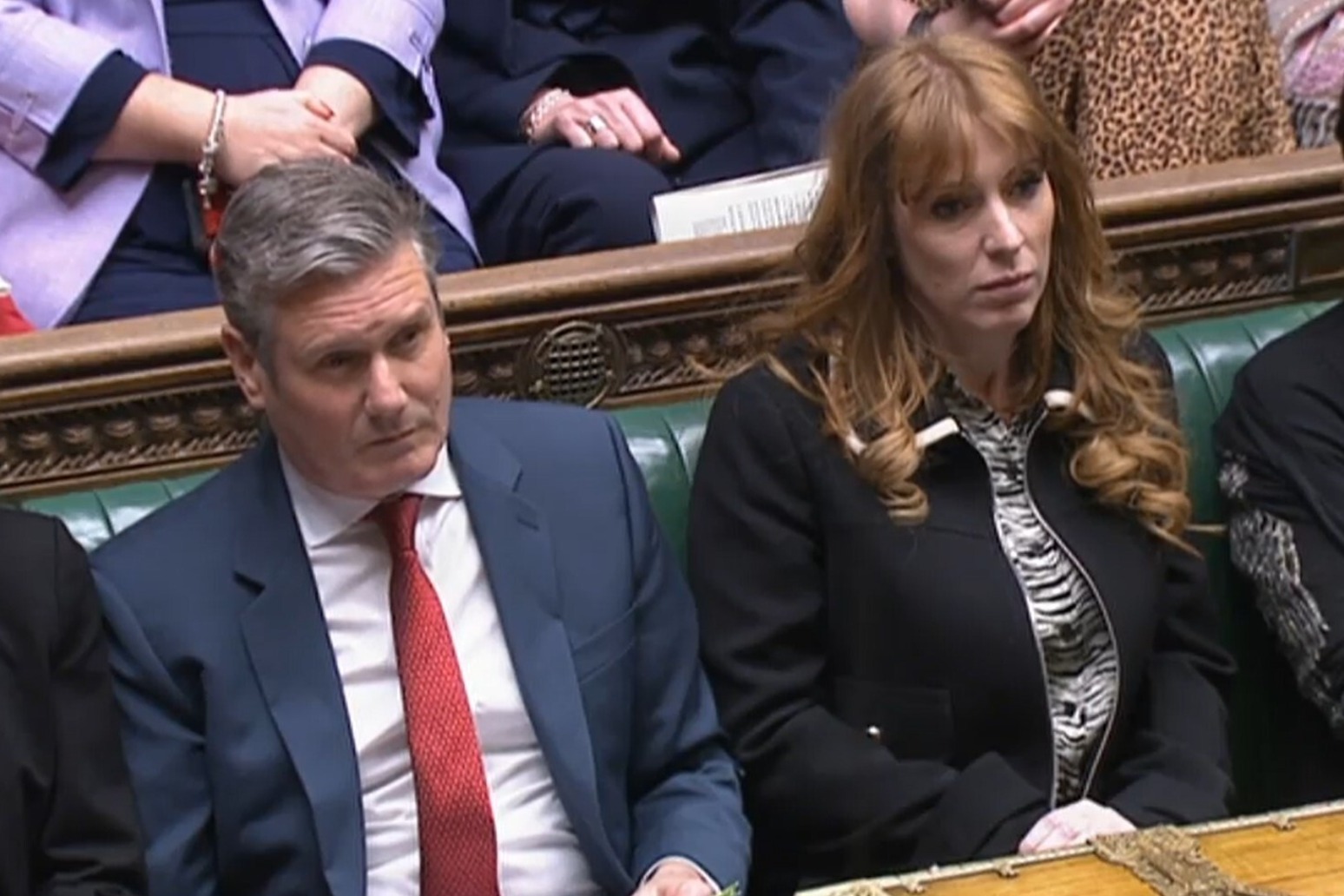Labour leader Sir Keir Starmer has publicly backed his deputy, Angela Rayner, after she admitted to underpaying tax on a property sale more than a decade ago. Despite calls from Conservative MPs for her resignation, Starmer insisted Rayner had “done nothing to warrant sacking” and reaffirmed his confidence in her position within Labour’s leadership.
The controversy has stirred political debate, not only about Rayner’s actions but also about accountability, transparency, and the weaponisation of personal financial matters in the run-up to a general election.
This article explores the details of Rayner’s tax issue, the political storm it has triggered, Starmer’s defense, and what this means for Labour and the wider political landscape.
Angela Rayner’s Tax Underpayment: The Background
Angela Rayner, Labour’s deputy leader since 2020, confirmed that she underpaid tax following the sale of a council house she had purchased under the “Right to Buy” scheme in 2007.
In 2015, she sold the property, reportedly making a gain of around £48,500.
The tax issue: Critics argue that because Rayner had already bought a second property—her husband’s home—before selling her council house, she should have paid capital gains tax (CGT). Rayner admitted that she had underpaid but insisted it was unintentional.
The settlement: She has since settled the matter with HMRC. The sum repaid is undisclosed, but sources suggest it was a relatively modest amount given the scale of the property gain.
Rayner maintains that her actions were not deliberate attempts to avoid tax but the result of a misunderstanding of property rules.
Tory Pressure: Calls for Rayner’s Resignation
Several prominent voices within the party argued that Rayner’s conduct made her position as deputy leader untenable.
Character questions: Some MPs suggested that Rayner’s credibility as a future leader of Labour was undermined. “How can the public trust Labour on fairness when their deputy leader fails to pay her taxes correctly?” asked one Tory backbencher.
Pressure tactics: By framing the issue as one of integrity, the Conservatives are attempting to weaken both Rayner and Labour’s moral stance on accountability.
The calls for resignation, however, appear politically motivated as much as principled, with the general election looming.
Starmer’s Response: “She Has My Full Support”
Keir Starmer moved quickly to close ranks around his deputy. In public statements, he made it clear that he believed Rayner’s explanation and viewed the issue as settled.
Starmer’s words: “Angela has been open about what happened. She has settled the matter with HMRC. There is no question of her being sacked—she continues to have my full support.”
Avoiding distraction: Starmer stressed that Labour must not be sidetracked by personal attacks and should stay focused on policy issues that matter to voters, such as the cost of living crisis and public services.
Unity message: His defence of Rayner also sent a signal to Labour’s grassroots: the leadership is united and will not fracture under external pressure.
Angela Rayner’s Own Defence
Rayner herself has spoken candidly about the situation, framing it as an error rather than misconduct.
Acknowledgment: She admitted the mistake and emphasized that she acted to resolve it with HMRC as soon as it was brought to her attention.
Rebuttal of accusations: She rejected the idea that she had deliberately sought to avoid tax. “I am not a tax dodger. I worked hard, I bought my home, and I followed the advice I was given at the time.”
Resilience: Rayner also dismissed Conservative calls for her resignation as a “smear campaign” aimed at silencing a working-class woman who has been outspoken about inequality.
Her defiance resonates with many Labour supporters who view the controversy as politically motivated rather than a genuine scandal.
Public Perception: A Divided Response
The public reaction to the revelations and subsequent debate has been mixed.
Supporters’ view: Many of Rayner’s supporters argue that the underpayment was minor, unintentional, and long since resolved. They see the attacks as an attempt to drag her down because of her working-class roots and plain-speaking style.
Critics’ view: Others see the issue as another example of politicians failing to live up to the standards they demand of ordinary citizens. Even if unintentional, they argue, such errors erode trust in politicians.
Neutral observers: Some analysts suggest that while the issue is damaging in the short term, it is unlikely to have a lasting impact unless new revelations emerge.
Polls taken after the story broke indicate little change in Labour’s overall support, suggesting the public may not view the issue as disqualifying.
Historical Parallels: Tax Troubles in Politics
Rayner’s tax underpayment is far from the first instance of financial controversy in British politics.
Boris Johnson: The former Prime Minister faced questions over donations, wallpaper renovations, and tax arrangements involving his spouse.
Nadhim Zahawi: The Conservative Party chairman was forced to resign in 2023 after it was revealed he had paid a penalty to HMRC over tax disputes.
Other MPs: Across party lines, numerous politicians have faced scrutiny for expenses, tax, and financial impropriety.
In comparison, Rayner’s issue—an underpayment settled without penalties—appears relatively minor. Yet the political stakes magnify its significance.
Class, Politics, and Double Standards
One striking aspect of the debate is the role of class and background in shaping perceptions of Rayner’s conduct.
Working-class roots: Rayner frequently emphasizes her upbringing in poverty and her rise through the Labour movement. Supporters argue she is being held to a harsher standard because she doesn’t come from privilege.
Double standards: Critics note that while Conservative figures with far larger financial scandals have survived in office, Rayner is being targeted for what may be a technical oversight.
Authenticity factor: Her supporters claim this controversy will not erode her authenticity, but rather highlight the hostility she faces as a working-class woman in politics.
The episode therefore touches on broader debates about who gets held accountable, and how.
Political Strategy: Why the Tories Are Targeting Rayner
For the Conservatives, keeping Rayner in the headlines serves several strategic purposes:
Distracting from policy failures: With the government under pressure over the economy, NHS waiting times, and immigration, shifting the spotlight to Labour figures can ease scrutiny.
Dividing Labour: The Tories hope that sustained pressure might create internal divisions within Labour between supporters and critics of Rayner.
Undermining Starmer’s integrity message: Starmer has consistently presented Labour as the party of “clean politics.” Highlighting financial issues within his own team challenges that narrative.
However, the strategy risks backfiring if voters perceive the attacks as opportunistic smears rather than substantive concerns.
The Road to the General Election
With a general election expected within the next year, every controversy is magnified. For Labour, the challenge is to keep focused on policy and avoid being dragged into defensive battles over personal matters.
Labour’s polling lead: Despite the controversy, Labour maintains a consistent lead over the Conservatives in national polls. Analysts suggest the tax issue is unlikely to significantly dent that advantage.
Campaign strategy: Starmer’s decision to back Rayner reflects a desire to project stability and unity, rather than risk internal conflict that could undermine voter confidence.
Resilience test: How Rayner weathers this storm may set the tone for Labour’s ability to handle inevitable attacks during the election campaign.
If Labour emerges from the episode relatively unscathed, it could even strengthen perceptions of their resilience under fire.
Media Coverage: A Battle of Narratives
The story has sparked intense media coverage, with different outlets framing the issue in contrasting ways.
Left-leaning press: Outlets like The Guardian and Mirror have highlighted Starmer’s backing, Rayner’s defiance, and the disproportionate scrutiny compared to Conservative scandals.
Broadcast media: The BBC and Sky News have sought to strike a balance, reporting the facts while acknowledging the political implications.
This divergence reflects broader polarization in the media landscape, where stories are often weaponized to fit political narratives.
What This Means for Angela Rayner’s Future
For Angela Rayner, the controversy is both a challenge and an opportunity.
Challenge: She faces continued scrutiny from opponents and risks being a distraction for Labour’s campaign if the issue drags on.
Opportunity: By confronting the controversy head-on and refusing to back down, Rayner may solidify her reputation as a fighter who won’t be bullied out of politics.
Leadership potential: Some analysts believe that how she handles this episode could either strengthen or weaken her chances of one day becoming Labour leader.
Her political career is unlikely to be derailed by this alone, but it will remain part of her story moving forward.
Conclusion: A Storm, But Not a Fatal Blow
Angela Rayner’s admission of tax underpayment in 1996 has unleashed a political storm, but it appears unlikely to topple her from her position. Keir Starmer’s strong backing sends a clear message of unity and confidence, while public reaction suggests limited long-term damage to Labour’s standing.
For the Conservatives, the controversy provides ammunition, but whether it resonates with voters in a meaningful way remains uncertain.
Ultimately, the episode highlights not only the weaponisation of personal financial issues in politics but also the resilience required to survive in the public arena. Rayner’s defiance, coupled with Starmer’s loyalty, ensures she remains a central figure in Labour’s leadership—at least for now.
http://Starmer backs Rayner tax underpayment Tories call for sacking



